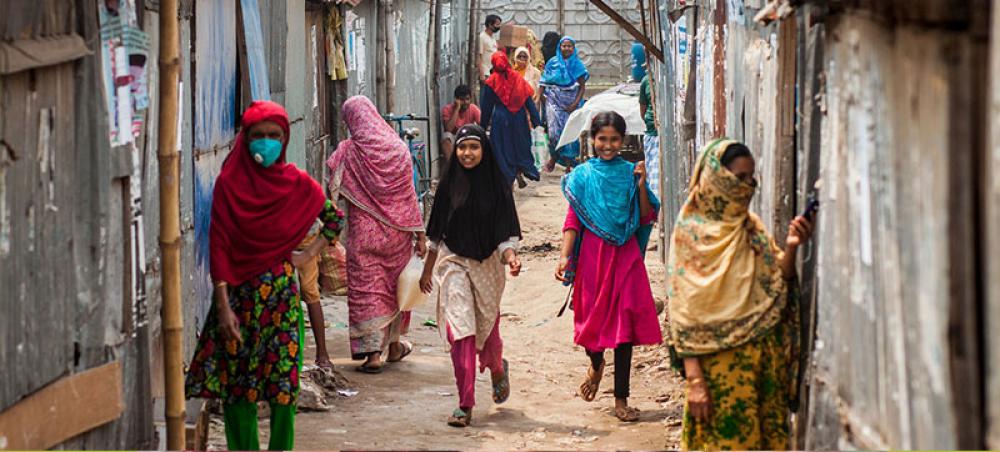Just Earth News | @justearthnews | 08 Oct 2021

Image: UNDP/Fahad Kaizer
New York: COVID-19 has “laid bare deep structural inequalities” everywhere, further widening a multitude of gaps, both within and between countries, the UN High Commissioner for Human Rights told a major urban policy event in South Korea on Thursday.
Under the theme of Human Rights in Times of Challenge: A New Social Contract, rights chief Michelle Bachelet informed the World Human Rights Cities Forum (WHRCF) in Gwangju, that poverty, inequalities and discrimination have grown wider and resulted in a loss of trust between citizens and their leaders.
“But even before, demonstrations in many parts of the world had already been alerting us that without upholding social and economic rights, societies were in danger”, she said in her video message.
Stepping up rights, rebuilding trust
Establishing a new social contract that protects and promotes all human rights – civil, political, economic, social and cultural – would rebuild public trust, according to the UN official.
“That includes the rights to social protection, health, education, housing and water and sanitation”, she said. “And the right to live free from discrimination”.
Ms. Bachelet recalled her words to the UN Human Rights Council earlier, when she maintained that navigating a clear way out of the complex COVID-19 crisis, and towards an inclusive, green, sustainable and resilient future, would be “the work of this generation of world leaders – or their downfall”.
Investing in societies
The Rights chief underscored that “investing in human rights is investing in societies’ resilience to crises”.
Speaking from her own personal experience as the President of Chile during the aftermath of the 2008 economic crisis, she said, “I chose to steer away from austerity measures and experienced first-hand the enormous benefits of investing in social protection”.
Ms. Bachelet did that with a pension reform that introduced a fairer system for women, with redistribution and coverage to ensure that the most vulnerable could count on a basic income.
“Economic and social data indicated that these policies were boosting economic growth and enhancing, not only basic justice, but also social cohesion and building trust in public institutions”, she said.
“International cooperation and solidarity are key elements in achieving these objectives worldwide”.
City Hall matters
The focus of the Forum was on how to build fairer and more equal societies, better for people and planet.
“The experience of cities and local governments in protecting and promoting human rights, especially in times of COVID-19, is invaluable for the international community”, said the human right chief.
Investing in human rights is investing in societies’ resilience to crises -- UN Rights chief
While some local governments have already developed a variety of human rights instruments and declarations, she observed that others are looking at prioritizing their budget to “leave no one behind”.
The High Commissioner elaborated that many delivered school meals to children’s homes when the pandemic forced classrooms to close, or placed a moratorium on evictions for people whose income was impacted by the COVID-19 crisis.
Strengthening multilateralism
Although citizens look to mayors and local authorities for solutions, they often have no say in decisions that directly affect their constituencies, Ms. Bachelet said.
“The voice of local governments needs to be heard at national and international levels”, she said, while adding that their voices “will make multilateralism stronger”.
“I call on all of you in this Forum to work together towards building a strong community of local governments that support each other in solidarity and fight for human rights”, she concluded.